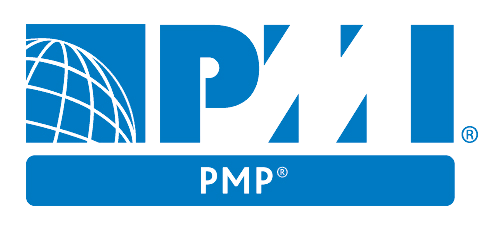Is the Project Management Professional (PMP) certification on your professional bucket list? That was me last summer, although the thought of preparing my application or studying for the exam seemed too overwhelming to get started. I had the experience necessary to sit for the PMP exam, that was the easy part. I kept telling myself that I would work on my application and start studying when I had “down time.” If you are like me, “down time” is hard to come by.
Looking back as a PMP now, the hardest part for me was putting together a plan of attack and knowing what to do and when to do it. Here are my suggestions for taking the leap into PMP exam preparation:
1. Start with your application
I put together a high-level timeline that showed the different projects that I had worked on over the past four years. I used my calendar and timesheets to re-construct the time that was spent on each project and broke those hours down into the major process buckets.
Quick tip – the online application will only let you enter 4500 hours so don’t spend a lot of time putting together project descriptions for projects beyond that. The project descriptions are limited to 550 words so it can take a little time to craft them to represent your role in the project comprehensively, especially if the project spanned several months or years.
2. Take a boot camp to kick-start your studying
Once I had my application prepared, I signed up for a one-week PMP exam boot camp. Prior to beginning the intensive weeklong program, I read the PMBOK (Project Management Book of Knowledge) and read the study guide companion that was provided by the organization that led the training to give myself a grounding in the Project Management Institute (PMI) terminology.
Boot camps are offered in person, live on-line, or as recorded sessions that you can work through at your own pace. I personally enrolled in a live on-line course. It allowed me to focus on the training outside of my workplace, but was interactive as the instructor could adapt the content and presentation to our questions and the learning styles of our group.
I submitted my PMP application on Friday evening at the conclusion of the course as it also provided me with the 35 education contact hours required for the application. Once the application was submitted and approved, I had one year to sit for the exam so for me it was important to start that clock to keep me motivated following the boot camp.
3. Take practice tests
To me, one of the biggest challenges with the PMP exam is the wording of the questions and the answer choices. There were a lot of situational questions asking, “what would you do next?” The questions also use vocabulary that may not be common in your organization so it was helpful for me to take as many practice tests as I could. Taking practice tests helped me with time management – critical on a four-hour test with 200 questions – and it helped me to learn patterns in the question formats and answers. I highly recommend taking practice tests that provide not just the correct answer, but include a reason for why that answer was correct and why the others were incorrect. Most prep books include practice tests or you can find them online as well. You will want to make sure that the practice tests match the current version of PMBOK.
4. Limit your exam studying to one to three months following boot camp
Exam burnout is real. You want to find the studying sweet spot where the information feels fresh and you are confident that you know 80-90% of the subject area content, but you aren’t exhausted from studying. Don’t worry about knowing 100% of the content. PMI doesn’t provide “pass rates,” but the general consensus is that if you are passing around 80-85% of your practice tests, then you are ready for the exam. PMP exam test dates tend to fill up ahead of time so I recommend choosing a date one to three months out and then tailoring your studying to be ready by that date.
Be confident in your test preparation. The day of the test, I took a 20-question practice test just to get my brain focused on the question types and content. Trying to cram anything else into your brain at this point is futile. Drink a cup of tea and eat a healthy meal to give you fuel for the long exam. Don’t second-guess your answers. If you are truly unsure, choose an answer and return at the end if you have time. As my high school biology teacher repeatedly told us, your brain knows the answer, but your mind will try to talk you out of it. Trust that your months of preparation have taught your brain the correct answers and rock the PMP exam!





